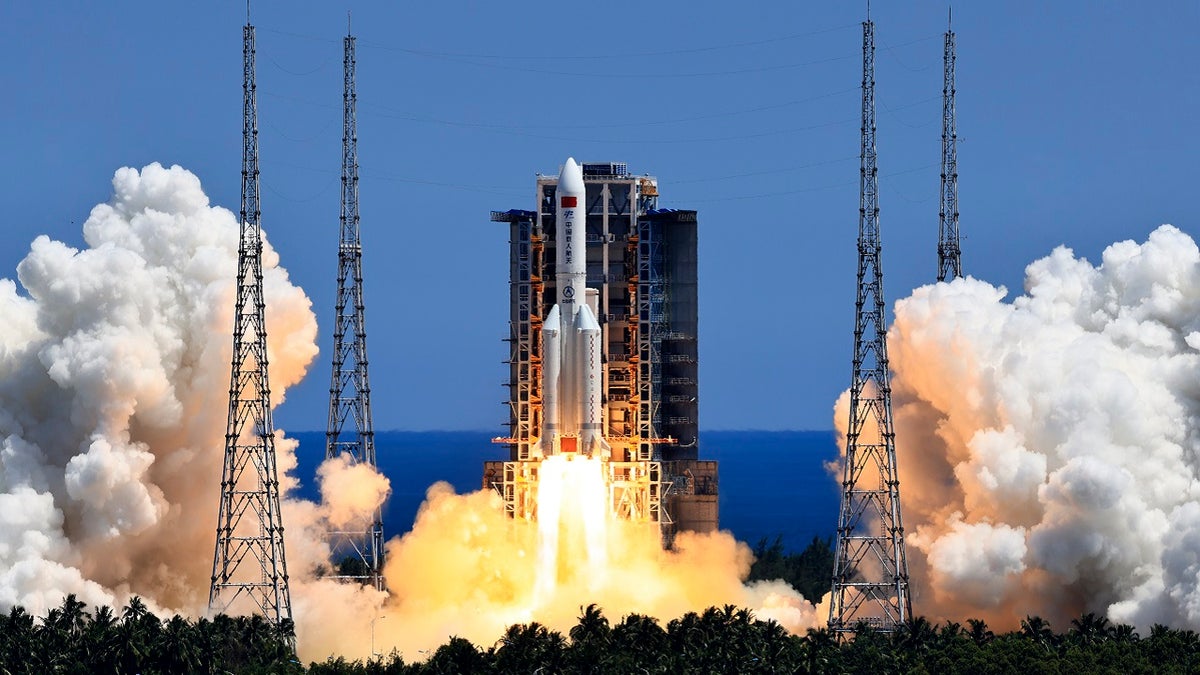By
China on Sunday sent its new Wentian lab module into space to become part of its growing orbiting space station, but scientists are unsure of exactly where the debris from the launch will ultimately crash-land back on Earth.
China used the Long March 5B heavy lift rocket to send the Wentian lab into orbit, but the rocket's tremendous weight of more than 1.8 million pounds means that it will not likely burn up completely on reentry.
"Unfortunately, it is probable that the 21-tonne core stage will be left in low orbit to make an uncontrolled reentry at an unpredictable location," Jonathan McDowell, astronomer at the Center of Astrophysics, tweeted Sunday.
According to the Washington Post, experts believe it is highly unlikely that the debris will hit an inhabited area, but the uncertainty makes it unnecessarily risky. A study from earlier this year noted that in 2020 and 2021, parts of Chinese Long March 5B rockets crashed down. While one landed in the Indian Ocean, debris from the other damaged Ivory Coast villages.
Even after last year's launch debris landed in the ocean, NASA Administrator Bill Nelson said the country was "failing to meet responsible standards regarding their space debris," the Post reported.
The Wentian lab launch was the third since the Chinese space station began construction. The launch was conducted on the island province of Hainan as onlookers observed. The China Manned Space Agency said the lab docked roughly 13 hours later with the Tiangong space station.
Three astronauts greeted the module and oversaw the docking. They are in the middle of a six-month stint on the space station that began in June.
Another lab module is expected to go up in October.
US CONDEMNS RUSSIA FOR BLOWING UP OWN SATELLITE AND CREATING SPACE DEBRIS
China has not only been called out for being careless with space debris landing on the ground but in space as well. On Tuesday, Chief of Space Operations for the U.S. Space Force Gen. John ‘Jay’ Raymond said China was among guilty parties in conducting destructive, direct-ascent anti-satellite missile testing.
Raymond recalled that in 2007, China conducted a test that created 3,000 pieces of debris that could threaten existing satellites and pose dangers to astronauts.
In April, Vice President Kamala Harris announced that the U.S. will not conduct such tests, as part of an effort to set norms for outer space conduct.
"These tests, to be sure, are reckless, and they are irresponsible," Harris said.
The Associated Press contributed to this report.

July 25, 2022 at 09:15PM
via Fox News Read more...

0 Comments